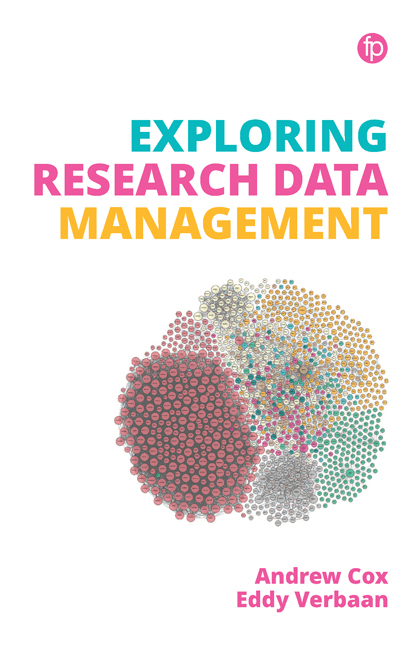Book contents
- Frontmatter
- Contents
- List of tables and figures
- 1 Introducing Research Data Management
- 2 The Social Worlds of Research
- 3 What Are Research Data?
- 4 Case Study of RDM in an Environmental Engineering Science Project
- 5 RDM: Drivers and Barriers
- 6 RDM as a Wicked Challenge
- 7 Research Data Services
- 8 Staffing a Research Data Service
- 9 Requirements Gathering for a Research Data Service
- 10 Institutional Policy and the Business Case for Research Data Services
- 11 Support and Advice for RDM
- 12 Practical Data Management
- 13 Data Management Planning
- 14 Advocacy for Data Management and Sharing
- 15 Training Researchers and Data Literacy
- 16 Infrastructure for Research Data Storage and Preservation
- 17 Evaluation of RDS
- 18 Ethics and Research Data Services
- 19 A Day in the Life Working in an RDS
- 20 Conclusion: the Skills and Mindset to Succeed in RDM
- Index
2 - The Social Worlds of Research
Published online by Cambridge University Press: 21 September 2019
- Frontmatter
- Contents
- List of tables and figures
- 1 Introducing Research Data Management
- 2 The Social Worlds of Research
- 3 What Are Research Data?
- 4 Case Study of RDM in an Environmental Engineering Science Project
- 5 RDM: Drivers and Barriers
- 6 RDM as a Wicked Challenge
- 7 Research Data Services
- 8 Staffing a Research Data Service
- 9 Requirements Gathering for a Research Data Service
- 10 Institutional Policy and the Business Case for Research Data Services
- 11 Support and Advice for RDM
- 12 Practical Data Management
- 13 Data Management Planning
- 14 Advocacy for Data Management and Sharing
- 15 Training Researchers and Data Literacy
- 16 Infrastructure for Research Data Storage and Preservation
- 17 Evaluation of RDS
- 18 Ethics and Research Data Services
- 19 A Day in the Life Working in an RDS
- 20 Conclusion: the Skills and Mindset to Succeed in RDM
- Index
Summary
Aims
The aim of this chapter is to prompt you to reflect on the nature of research. By definition, if we are going to support RDM, we need to have some understanding of the intellectual and social organisation of research.
Introduction
If you come from an academic library background you may well have been attracted to the profession by an enthusiasm for information literacy. Libraries have made huge strides in the last few years towards making a very strong contribution to teaching in universities. Now we seem to be seeing a turn towards more support to research. Something of the same trend seems to be happening in IT services. In this context it is useful to reflect more on the current research landscape. You may work in research administration, in which case much of this will be familiar, but it is worth stepping back and reflecting on one's assumptions about research.
Exploring further
Jot down some keywords that describe ‘research’ as an idea. Then do some work trying to think how these might link through to RDM.
The research landscape
Research is a central activity for many universities. It is a key source of revenue: a multi-billion dollar business. Ideologically it is core to many university missions: particularly in ‘research-intensive’, elite institutions it is really what defines their special status.
Some key features of research you might have thought of earlier are:
• Funding – the competitive struggle to gain funding for research is central to many researchers’ lives. Gaining a grant means having the resources to do bigger scale work and come up with more significant findings. Thus the positon of funders on RDM is critical. Nevertheless, it should be remembered that much research is still unfunded, or perhaps more accurately funded by institutions themselves through the time they give academic staff to do research.
• Projects – a lot of research, similarly to professional support work, is organised in projects. This colours a lot of research-related behaviour, e.g. it shows up in how people store their personal files. Thus, they are fixed-funded for a limited time period with fairly clear deliverables. This has consequences for RDM in terms of what happens when the project finishes. At project end there may be no resources for doing work on sharing data.
- Type
- Chapter
- Information
- Exploring Research Data Management , pp. 11 - 18Publisher: FacetPrint publication year: 2018

